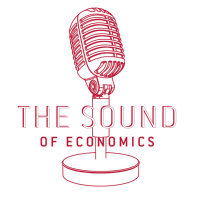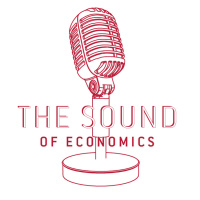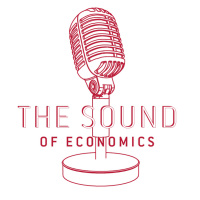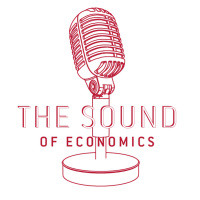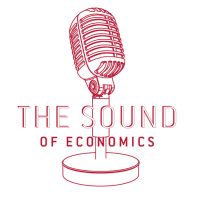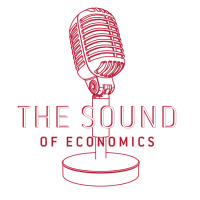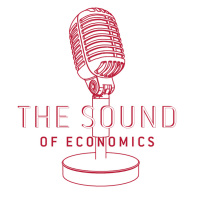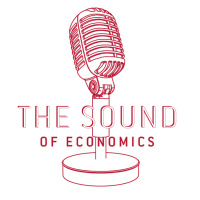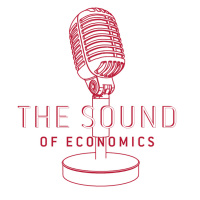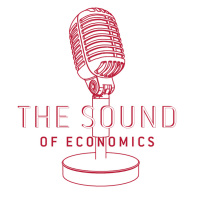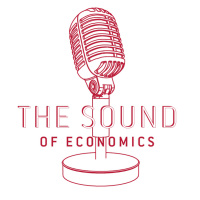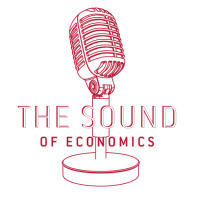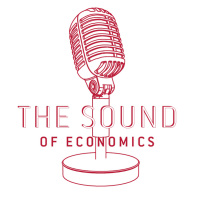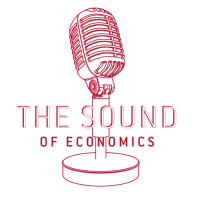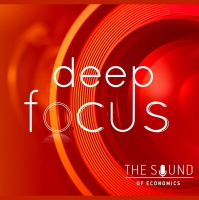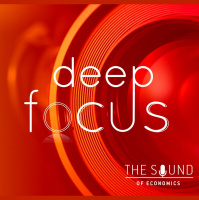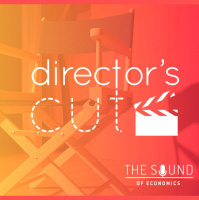Synopsis
Bruegel is the European think tank working in the field of international economics. Established in 2005, Bruegel is independent and non-doctrinal. It seeks to contribute to European and global economic policy-making through open, fact-based and policy-relevant research, analysis and debate.
Episodes
-
S6: Will Iran disrupt the global economy?
06/01/2020 Duration: 21minLast Friday, Qassem Soleimani, head of the Iranian Revolutionary Guards’ QUDS force, was killed by an American airstrike outside Baghdad airport. Tehran has promised to retaliate. At the time of recording, the world is still waiting to see how Iran will respond. Some have speculated that they could disrupt the world’s oil markets by closing the Strait of Hormuz, which acts as a vital artery for around a third of the world’s liquefied natural gas and almost a quarter of the world’s oil. Today, oil prices surpassed $70 a barrel and if tensions continue to escalate the price is bound to grow. How dependent is the global economy on affordable Middle Eastern fossil fuel? This week, Nicholas Barrett is joined by Maria Demertzis and Niclas Poitiers to discuss how the US-Iran hostilities are affecting the global economy.
-
S6: A decade to remember (or possibly to forget) for economists
20/12/2019 Duration: 40min2019 is coming to an end and so is the decade. How did economics change the world over the last ten years? And how did the world change economics? Which economics books defined the last ten years? And what should we anticipate in the decade to come? Today, Nicholas Barrett discusses the past and the future with Niclas Poitiers and Maria Demertzis.
-
S6: The Sound of Margrethe Vestager
19/12/2019 Duration: 26minWill AI exacerbate the gap between big companies and small ones? Do ordinary Europeans gain anything from having European tech giants? This week, Nicholas Barrett and Guntram Wolff went to the Berlaymont to interview Margrethe Vestager, the Executive Vice President of the European Commission for a Europe Fit for the Digital Age.
-
S6: Capture the nodes
16/12/2019 Duration: 26minHow do states exercise power through global economic networks? The multilateral world order is supposed to be harmonious, but by seizing the nodes of production, powerful forces can control access to the global economic system and threaten to lock their rival out. This week, Nicholas Barrett and Guntram Wolff are joined by Henry Farrell, Professor of political science and international affairs at the George Washington University, and Abraham L. Newman, Professor of Government at the Georgetown University, to discuss their theory of weaponised interdependency
-
S6: Appellate Body Politic
12/12/2019 Duration: 27minThis week, the WTO's Appellate Body, the dispute settlement body, became inoperational: it no longer has the necessary number of judges to render verdicts. What does this mean for international trade and multilateralism? Are we now living in a world without dispute settlement? This week, Guntram Wolff is joined by Alan Beattie, the author of the FT's new Trade Secrets newsletter, and Alicia García-Herrero to discuss the crisis of the Appellate Body.
-
S6: What's inside the European Green Deal?
11/12/2019 Duration: 42minPresident Ursula Von der Leyen has presented her European Green Deal before the European Parliament. How will it work? What are its implications? And will it make Europe carbon neutral by 2050? Nicholas Barrett asks Simone Tagliapietra what's inside the Green Deal.
-
S6: Getting post-Brexit trade deals done
10/12/2019 Duration: 20minThe UK goes to the polls on Thursday to decide who (and if) they want to "get Brexit done". But, as soon as Britain leaves, it will have 11 months to agree a trade deal with the EU. Is it possible? Nicholas Barrett is joined by Maria Demertzis and Niclas Poitiers to discuss post-Brexit trade deals with the EU and the USA.
-
S6: The Belt and Road anxiety
05/12/2019 Duration: 27minIs the Belt and Road initiative a global development plan or is it just a trade project? How concerned should the international community be with what is called the "project of the century"? This week, Guntram Wolff discusses the Belt and Road Initiative with Prof. He Fang, from the Shanghai Jiao Tong University, Dr. Jing Gu, director of the Centre for Rising Powers and Global Development, and Suman Bery, from Bruegel. This podcast was recorded in Berlin at the Asia Europe Economic Forum (AEEF): https://bruegel.org/events/eu-asia-trade-and-investment-connectivity/
-
S6: The EU-Russia-China energy triangle
27/11/2019 Duration: 25minRussia wants to export more gas to China, should the EU be concerned? This week, Nicholas Barrett is joined by Georg Zachmann to discuss the EU-Russia-China energy triangle.
-
S6: Ethics and Algorithms
20/11/2019 Duration: 41minWill EU tech regulations undermine its ability to innovate? From facial recognition to the production of “deep fakes”, artificial intelligence poses many ethical questions. In a world where China and the US are investing massively in AI, how can the EU protect its values while harnessing technology? These are some of the questions we discuss with Brent Mittlestadt, from the University of Oxford, and Andre Loesekrug-Pietri, from the Joint European Disruptive Initiative, in our new Sound of Economics podcast. The podcast is hosted by Guntram Wolff and Nicholas Barrett.
-
Cars, steel and national security: The EU-US trade spat
14/11/2019 Duration: 30minGuntram Wolff is joined by Alan Beattie, the author of the FT's new Trade Secrets newsletter, and by Andre Sapir, Bruegel's very own trade expert to discuss President Trump's tariffs and whether or not they're working
-
S6: How to make the European Green Deal work (Part Two)
13/11/2019 Duration: 39minDon't worry if you missed part one because all of Bruegel's pillars for a European Green Deal are created equal. This time, Nicholas Barrett and Guntram Wolff discuss industrial policy and the social consequences of the green deal with Grégory Claeys and Simone Tagliapietra. To read the paper in full, visit Bruegel.org
-
S6: How to make the European Green Deal work (Part One)
07/11/2019 Duration: 41minThe European Green Deal will be a defining feature of Ursula Von der Leyen's incoming Commission. But will carbon border taxes and single carbon prices be enough to make Europe carbon-neutral by 2050? This week, Nicholas Barrett and Guntram Wolff discuss Bruegel's new paper 'How to make the European Green Deal Work' with Grégory Claeys and Simone Tagliapietra.
-
S6: How not to spend it
31/10/2019 Duration: 26minDigital banking has made our lives easier, but why are people use mobile banking more likely to be overdrawn? This week Maria Demertzis and Nicholas Barrett are joined by Annamaria Lusardi, Denit Trust Endowed Chair of Economics and Accountancy from George Washington University School of Business to discuss financial literacy
-
S6: How to spend it
23/10/2019 Duration: 30minWith interest rates so low for so long, central bankers are running out of levers to pull. But perhaps better fiscal policy can help economies grow as well as cutting carbon emissions. Politicians, journalists and economist have spent years bickering about the quantity of public spending in Europe, but the quality of public spending could be just as important. This week's podcast features Maria Demertzis, Boris Cournede, Francesco Papadia and Nicholas Barrett.
-
S6: The art of the Brexit deal
17/10/2019 Duration: 23minThe British government has reached a deal with the EU27. The agreement is still subject to approval by the British and European parliaments, as well as the European Council. But is it good news for Brussels? How will Britain strike favourable trade deals when all this is over? And, with a new relationship between Brussels, London and the world yet be realised, is this the beginning of the end or just the end of the beginning?
-
S6: Brexit: a European Odyssey
10/10/2019 Duration: 42minNicholas Barrett and Guntram Wolff talk to Kalypso Nicolaïdis, author of Exodus, Reckoning, Sacrifice: Three Meanings of Brexit. Together they discuss the mythology that binds Britain to continental Europe
-
S5 Ep64: Deep Focus: What's slowing the Mercosur agreement?
27/09/2019 Duration: 10minThe European Union and Mercosur – a customs union covering Argentina, Brazil, Paraguay and Uruguay – have spent two decades negotiating a trade agreement. The gains are modest the ratification process will be anything but easy. Nevertheless, the deal is worth fighting for according to Uri Dadush. This week he joins Nicholas Barrett on our Deep Focus podcast to discuss the perils and process of an agreement that could be as significant to the globe's climate as it is for the global economy. Read the latest policy contribution by Michael Baltensperger and Uri Dadush on the same topic.
-
S5 Ep63: Deep Focus: What is a hybrid attack?
18/09/2019 Duration: 12minIncreasing cyber and hybrid risks will test the European Union’s system of fragmentation on issues of security but centralisation on financial and other economic issues. This asymmetry was not an obstacle in a world in which security threats were more contained or of a different nature. But the world is changing. But what is a hybrid attack and whose responsibility is it to deal with? Last week Bruegel's Director, Guntram Wolff and our Deputy Director Maria Demertzis presented a paper on the subject to ECOFIN, an informal meeting of European finance ministers in Helsinki. In this episode of Bruegel's "Sound of Economics" podcast, Nicholas Barrett sits down with Guntram Wolff to find out.
-
S5 Ep62: Director's Cut: The Green New Deal
11/09/2019 Duration: 23minThe layout of the commission has largely changed this year. A key part being that there are now three executive Vice Presidents, driving three main economic issues. Frans Timmermans, responsible for the implementation of the Green Deal; Margrethe Vestager, responsible for the digital age and competition policy and Valdis Dombrovskis, responsible for economy and financial services. The major change being that, in this commission, the Vice Presidents also have their own portfolio and Directorate-Generals to oversee, suggesting these three will be instrumental in driving the political priorities of commission. In this episode of 'The Sound of Economics' Bruegel director Guntram Wolff discusses with Simone Tagliapietra the new commission setup and Ursula von der Leyen's European Green Deal. In his previous blog post on the Green Deal, Simone argues not only does it aim to reduce the continent's emissions, but it also has the potential to grow the EU's economy and transform the bloc's politics. He also state

